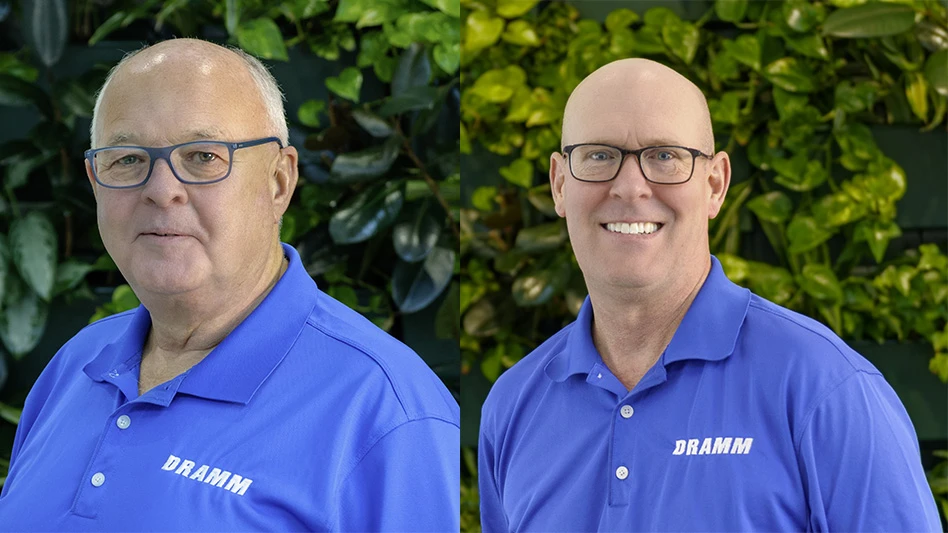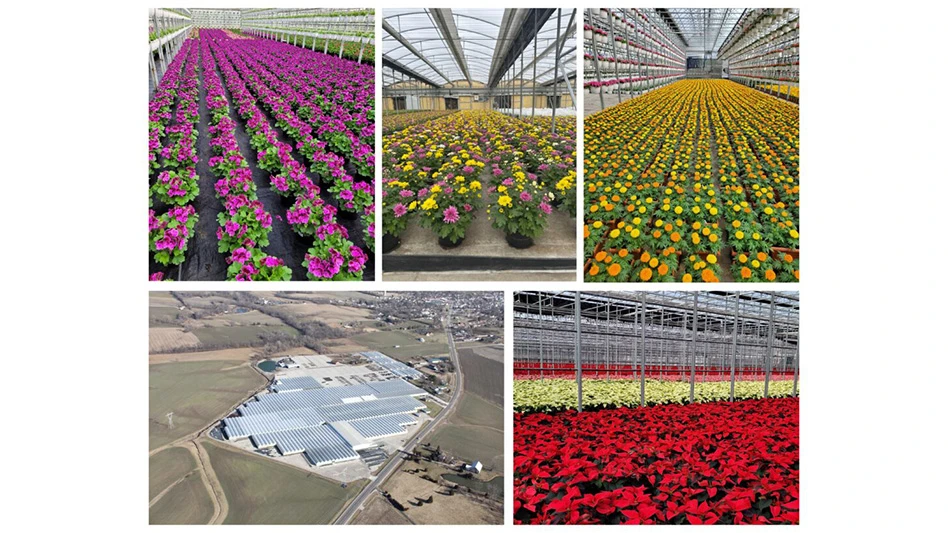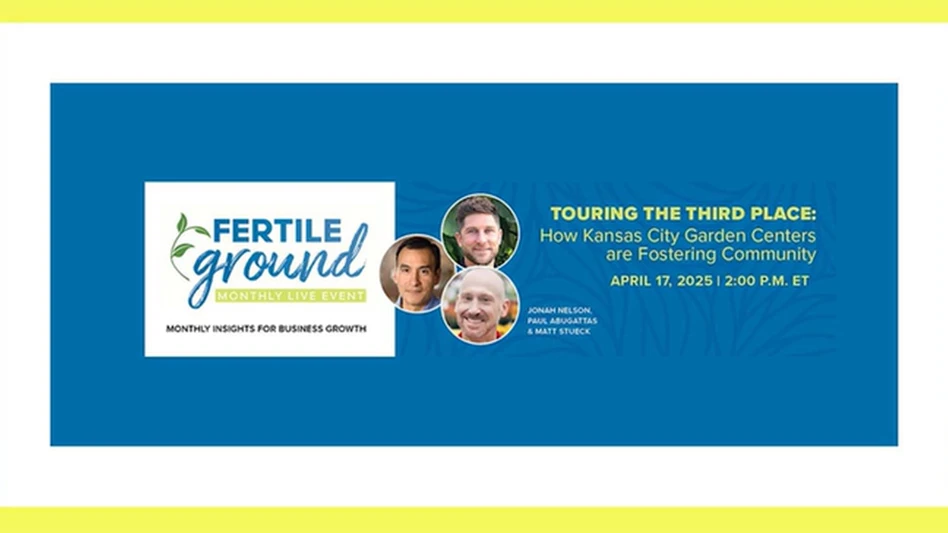 Lynne Bower with Stonegate Gardens in Lincoln, Mass., said she’s been very fortunate to have had two professions she’s passionate about. Before she entered the green industry, Bower was in the medical field for more than 20 years, primarily with Children’s Hospital in Boston.
Lynne Bower with Stonegate Gardens in Lincoln, Mass., said she’s been very fortunate to have had two professions she’s passionate about. Before she entered the green industry, Bower was in the medical field for more than 20 years, primarily with Children’s Hospital in Boston.
“I was a respiratory therapist and coordinator of the ECMO (ExtraCorporeal Membrane Oxygenation) program,” she said. “We would place critically ill children on a heart-lung bypass system in the ICU for a duration of days to weeks until their hearts or lungs healed. I loved Children’s [Hospital] and my job.”
Several years ago, Bower was approached by Bruce MacDowell with a business proposition. MacDowell owned a landscape-construction company, and decided to purchase a roadside nursery in town. He asked Bower if she would help get the business off the ground.
“I had never been in retail and knew nothing about nurseries or garden centers,” she said. “I took a part-time job as a cashier in the spring season at a local garden center and enrolled in two horticulture classes while I was still in medicine. I liked it, and wanted to take the challenge on. I left Children’s [Hospital] eight years ago and never regretted my decision.”
GARDEN CENTER: What would you consider your most difficult retail lesson learned?
LYNNE BOWER: Buy small—buy often. Managing our inventory by increasing the times it turns over. This is easier to do in the annual and perennial departments. Too many times I purchase with my eyes and not from the purse. Cutting back on early pre-booked nursery orders was beneficial last year and is a practice that we’re continuing.
GC: How has the economy impacted your customers?
LB: Our business is in a very affluent area of Massachusetts. A majority of my fall and Christmas customers would not patronize our store in the spring. This past year, a lot of them came in and wanted to learn how to plant their own pots instead of their lawn maintenance crew doing them. Some of our home-care clients cut back (none cancelled) on how many times we would change out their potted containers, or decreased the number planted.
The size of the landscape designs that we implemented were smaller with the intention of finishing the rest of the installation in 2010 (I hope). My average sale was down slightly, but I had an increase in the number of retail sales.
 Stonegate Gardens in Lincoln, Mass., is nestled in a residential area and serves high-income homeowners.GC: How did your re-wholesale division fare?
Stonegate Gardens in Lincoln, Mass., is nestled in a residential area and serves high-income homeowners.GC: How did your re-wholesale division fare?
LB: The re-wholesale side of our business was affected. The big-ticket, deciduous tree sales were significantly down. Return visits of our landscape clients were less. The re-wholesale business was always strong for us in the summer and fall. I don’t want to lose them. I’ll pursue their business more this year with coupons, e-mail and phone calls. We plan to offer our landscape design service to the re-wholesale customer. This has been beneficial to everybody.
GC: How do you juggle the needs of re-wholesale customers and retail customers?
LB: Product pricing is marked at retail, and the wholesale discounts are managed automatically by the POS system. We ask that the wholesale clients park in the lower area for easier loading. We give both the retail and wholesale clients the same level of service.
GC: What kind of advertising/marketing is in the works for 2010?
LB: Last year I re-evaluated our advertising and cut back on programs I should have stopped a few years earlier. We used Constant Contact [e-mail marketing] a lot more. This year we’ll be adding a spring ad on the cable/local stations. Also, the few magazines that we do advertise in have dropped their rates significantly. Our “early spring coupon program” has always been successful, along with the Easter egg hunt and spring open house.
GC: How does being surrounded by residential development impact your business?
LB: We’ve had many zoning issues, but we’ve been able to survive. We’re considerate of the neighbors. Our outside lighting is limited. We’re not able to stay open past 6:30 p.m., which prevents us from hosting evening open houses and ladies nights. During the busy weekends in spring, we hire a police detail to direct traffic into our limited parking area. Our neighbors and customers appreciate this gesture.
GC: How has your florist business done over the past few years?
LB: Our floral business has been stagnant. However, I’ve not advertised our floral department as well as I should. Our florist is extremely talented. He has become our visual merchandiser and sets up the inside throughout the year. He also consults with clients on how to display our products inside the home, especially in the fall and during the holidays. His many hats are profitable for the business.
GC: What do you think will be your biggest “bright spot” in 2010?
LB: Our biggest opportunity is also our biggest challenge. We’re building a new “stone” greenhouse that will generate a lot of curiosity. It should help us capture new customers and create a larger repeat-customer base.
GC: What would you say is unique about your garden center?
LB: The setting. Fountains, ponds, magnificent stone walls and a post-and-beam barn grace the property. Our selection of hard-to-find conifers and Japanese maples delight customers.
Get curated news on YOUR industry.
Enter your email to receive our newsletters.
Explore the April 2010 Issue
Check out more from this issue and find your next story to read.
Latest from Garden Center
- GIE Media Horticulture Group wins five regional 2025 Azbee Awards of Excellence
- Terra Nova Nurseries introduces rust-free and disease-resistant heucherella
- John T. Nickel, founder of Greenleaf Nursery Co., passes away at 89
- Garden Media Group announces sixth annual Women in Horticulture Week
- Star Roses and Plants announces National Knock Out Rose Day
- The Growth Industry Episode 4: How federal budget cuts are affecting horticulture nonprofits
- Pennsylvania Horticultural Society shares top gardening trends from 2025 Philadelphia Flower Show
- California Spring Trials 2026 dates announced









